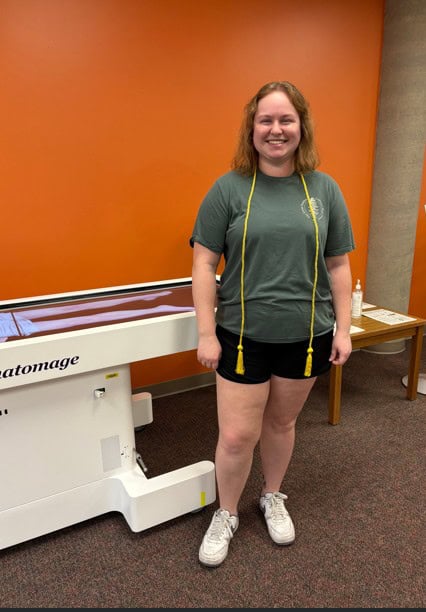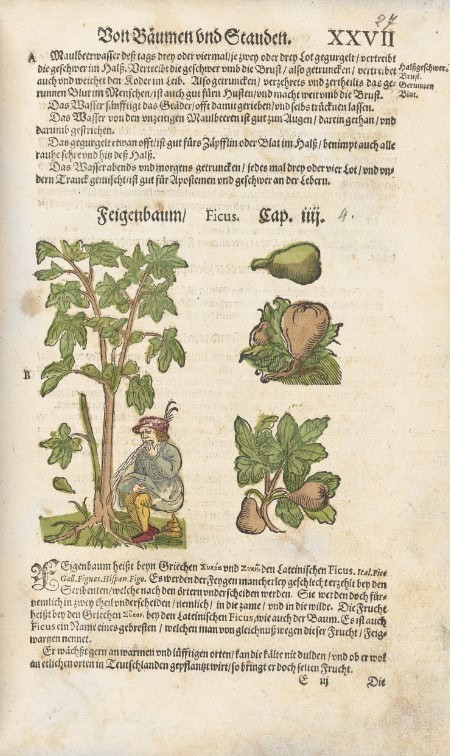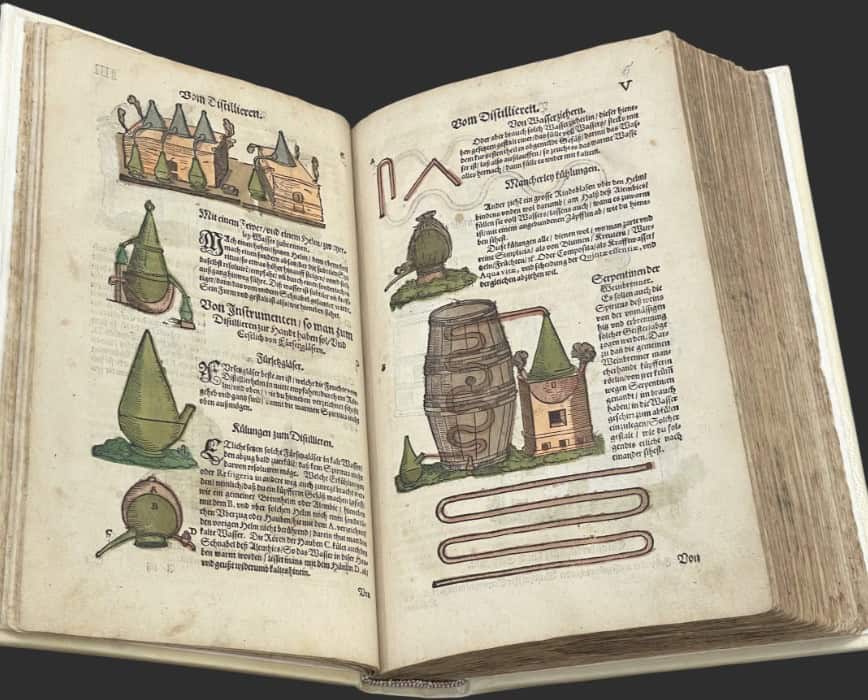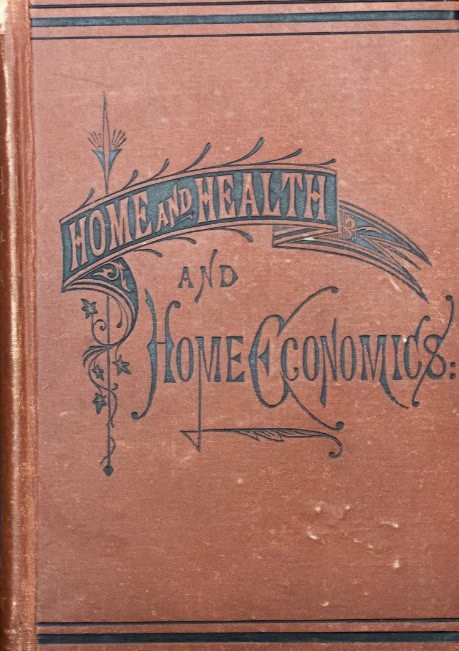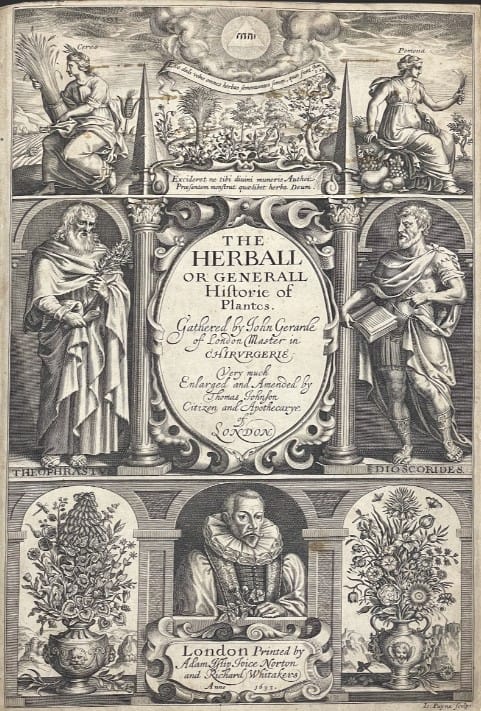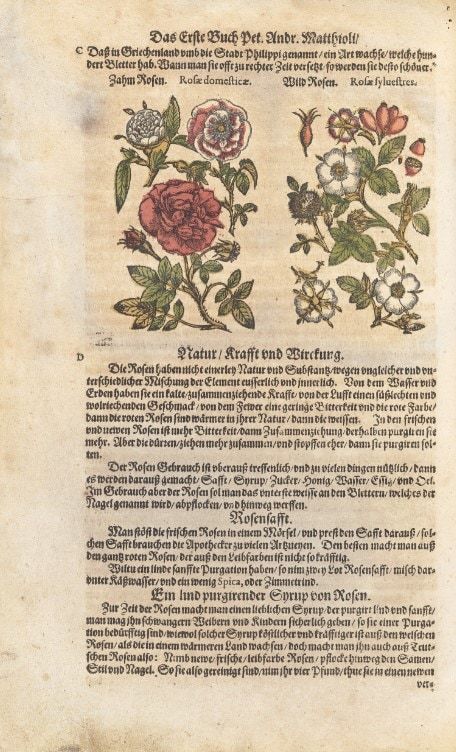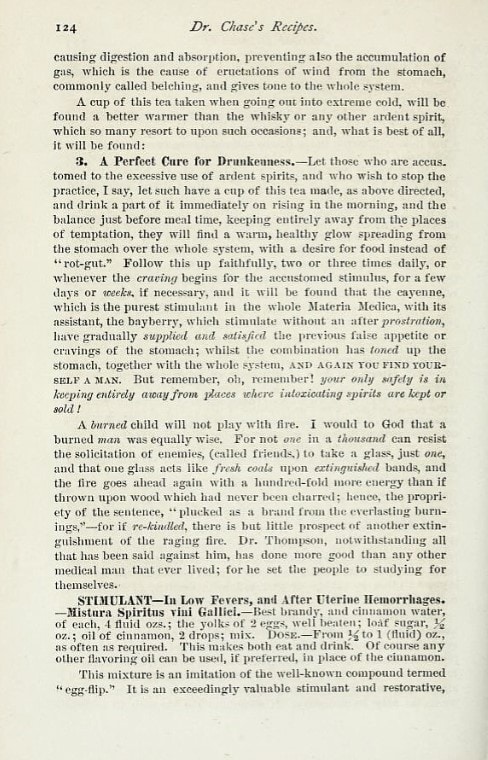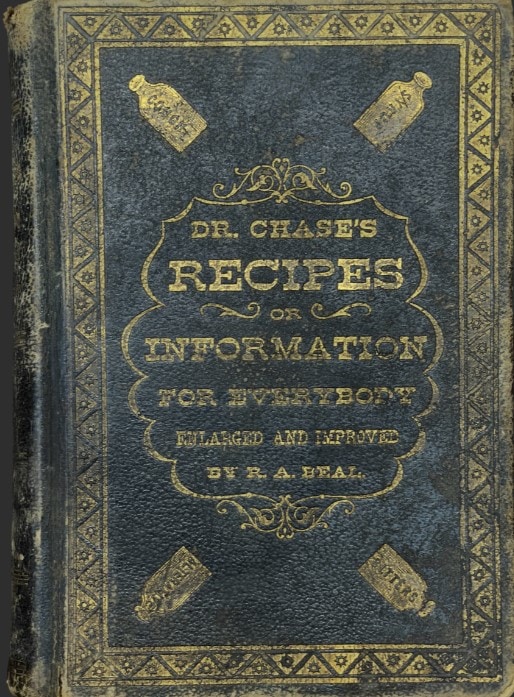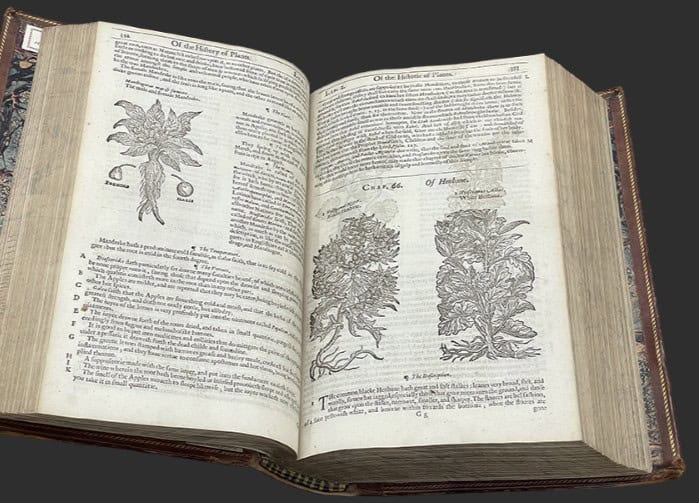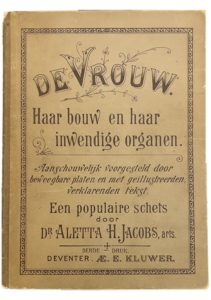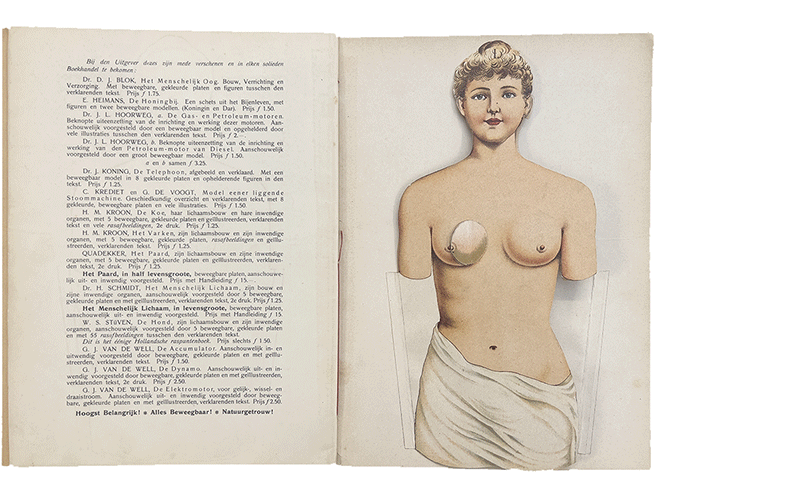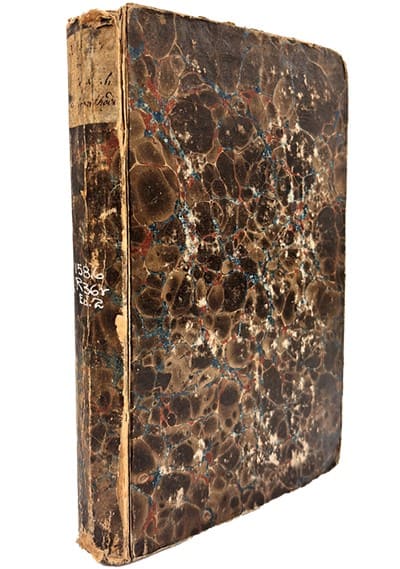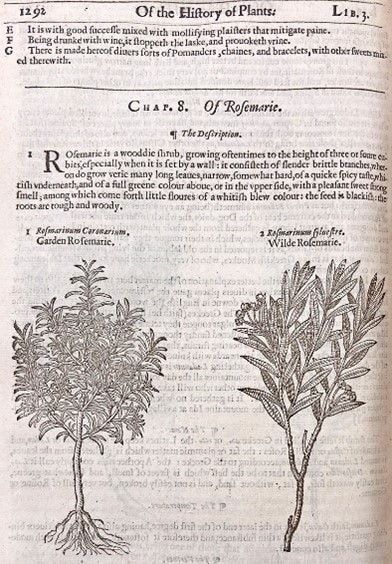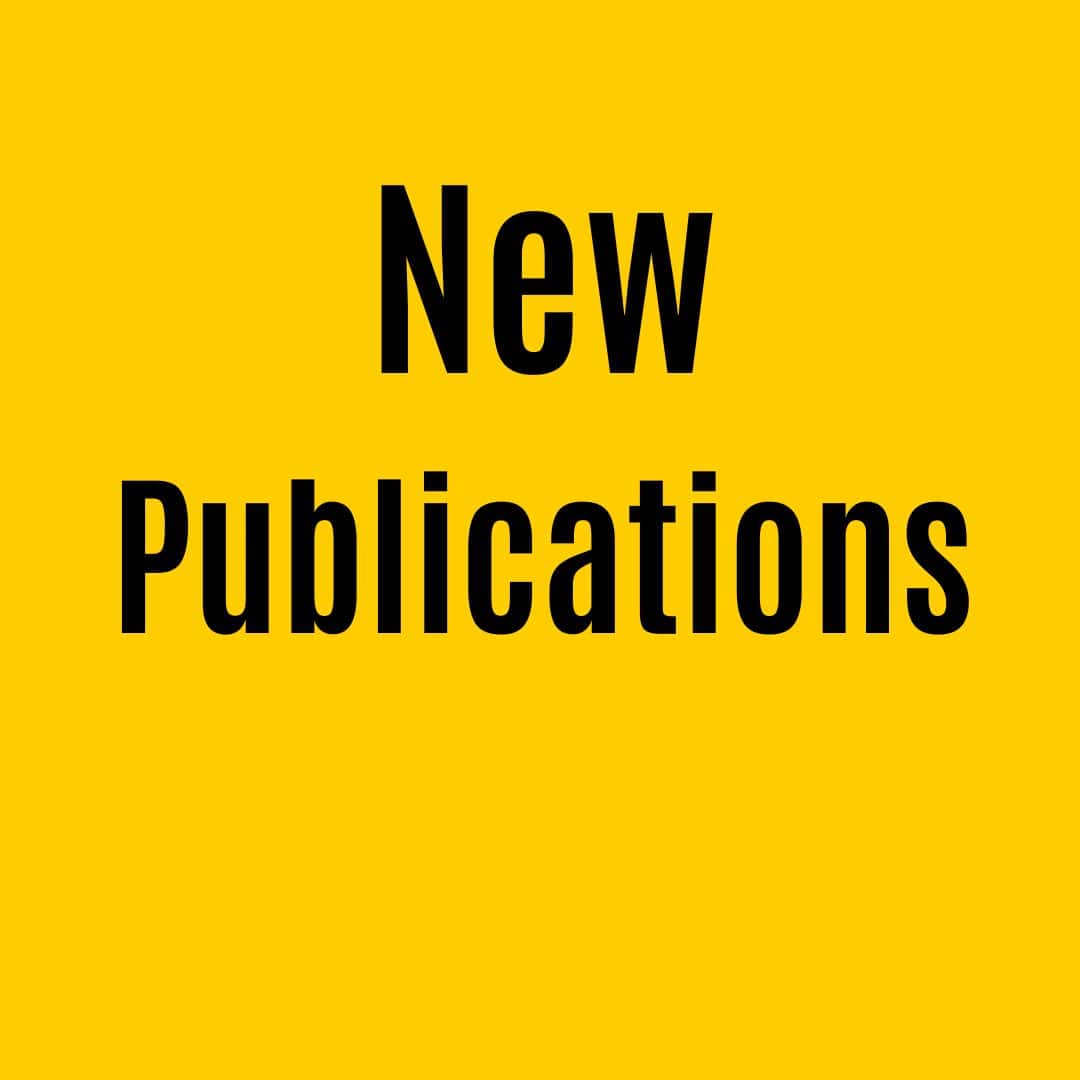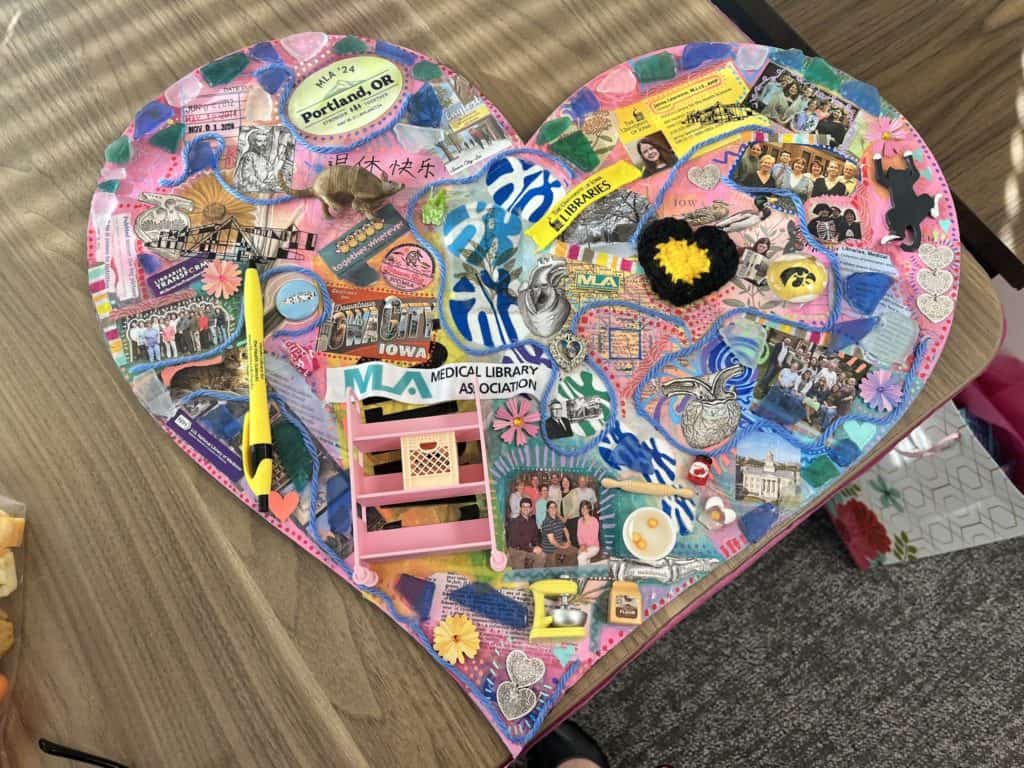In 2024, six of the librarians on staff at the Hardin Library for the Health Sciences have been listed as co-authors of published research. We’re always excited to collaborate with our library users, whose important work energizes all of us. Further information is listed below, and academic publications affiliated with the University of Iowa can be found anytime using Iowa Research Online.
Chris Childs
Mendes, M. S. S., Ferreira, C. L., Jardini, M. A. N., Childs, C. A., & Marchini, L. (2025). Ageism combating strategies in oral healthcare: A systematic review. Special Care in Dentistry, 45(1). https://doi.org/10.1111/scd.13094
Ghannam, M., AlMajali, M., Khasiyev, F., Dibas, M., Al Qudah, A., AlMajali, F., Ghazaleh, D., Shah, A., Fayad, F. H., Joudi, K., Zaidat, B., Childs, C. A., Levy, B. R., Abouainain, Y., Özdemir-van Brunschot, D. M. D., Shu, L., Goldstein, E. D., Baig, A. A., Roeder, H., … Yaghi, S. (2024). Transcarotid Arterial Revascularization of Symptomatic Internal Carotid Artery Disease: A Systematic Review and Study-Level Meta-Analysis. Stroke (1970). https://doi.org/10.1161/STROKEAHA.123.044246
Brown, E., Stuhr, S., Chambrone, L., Childs, C. A., Avila-Ortiz, G., & Elangovan, S. (2024). Publication Delay of Systematic Reviews in Dentistry: Findings, Implications, and Potential Solutions. The International Journal of Periodontics & Restorative Dentistry, 44(3), 252–255. https://doi.org/10.11607/prd.2024.3.c
Desai, J., Marchini, L., Childs, C., & Kohli, R. (2024). Randomized Controlled Trials in Geriatric Dentistry – 11. In Randomized Controlled Trials in Evidence-Based Dentistry (pp. 225–243). Springer International Publishing. https://doi.org/10.1007/978-3-031-47651-8_11
Ghannam, M., Al-Qudah, A. M., Alshaer, Q. N., Kronmal, R., Ntaios, G., Childs, C. A., Longstreth, W. T., Alsawareah, A., Keller, T., Serna-Higuita, L. M., Geisler, T., Furie, K., Saver, J. L., Kasner, S. E., Elkind, M. S. V., Tirschwell, D., Poli, S., Kamel, H., & Yaghi, S. (2024). Anticoagulation vs Antiplatelets Across Subgroups of Embolic Stroke of Undetermined Source: A Meta-Analysis of Randomized Controlled Trials. Neurology, 103(9). Buck, H. G., Howland, C., Stawnychy, M. A., Aldossary, H., Cortés, Y. I., DeBerg, J., Durante, A., Graven, L. J., Irani, E., Jaboob, S., Massouh, A., da Costa Ferreira Oberfrank, N., Saylor, M. A., Wion, R. K., & Bidwell, J. T. (2024). Caregivers’ Contributions to Heart Failure Self-care: An Updated Systematic Review. The Journal of Cardiovascular Nursing, 39(3), 266–278. https://doi.org/10.1097/JCN.0000000000001060https://doi.org/10.1212/WNL.0000000000209949
Selvamani, B. J., Kalagara, H., Volk, T., Narouze, S., Childs, C., Patel, A., Seering, M. S., Benzon, H. T., & Sondekoppam, R. V. (2024). Infectious complications following regional anesthesia: a narrative review and contemporary estimates of risk. Regional Anesthesia and Pain Medicine. https://doi.org/10.1136/rapm-2024-105496
Curtis, G., Weber, H., Tran, V., Childs, C., Shin, K., & Garaicoa-Pazmino, C. (2024). Impact of Non-Surgical and Surgically Assisted Rapid Maxillary Expansion Procedures upon the Periodontium: A Systematic Review. Applied Sciences, 14(4). https://doi.org/10.3390/app14041669
Jennifer Deberg
Vignato, J., Martin, T., Garton, M., Deberg, J., Dehner, H., Thompson, M., & Conley, V. (2024). A Systematic Review of Pain and Depression Symptoms During the Perinatal Period. https://doi.org/10.1016/j.jpain.2024.01.202
Heather Healy
Faro, E. Z., Taber, P., Seaman, A. T., Rubinstein, E. B., Fix, G. M., Healy, H., & Reisinger, H. S. (2024). Additional file 4 of Implicit and explicit: a scoping review exploring the contribution of anthropological practice in implementation science [dataset]. figshare. https://doi.org/10.6084/m9.figshare.26680037
Faro, E. Z., Taber, P., Seaman, A. T., Rubinstein, E. B., Fix, G. M., Healy, H., & Reisinger, H. S. (2024). Implicit and explicit: a scoping review exploring the contribution of anthropological practice in implementation science. Implementation Science : IS, 19(1). https://doi.org/10.1186/s13012-024-01344-0
Vakkalanka, J. P., Gadag, K., Lavin, L., Ternes, S., Healy, H. S., Merchant, K. A. S., Scott, W., Wiggins, W., Ward, M. M., & Mohr, N. M. (2024). Telehealth Use and Health Equity for Mental Health and Substance Use Disorder During the COVID-19 Pandemic: A Systematic Review. Telemedicine Journal and E-Health, 30(5), 1205–1220. https://doi.org/10.1089/tmj.2023.0588
Lavin, L., Gibbs, H., Vakkalanka, J. P., Ternes, S., Healy, H. S., Merchant, K. A. S., Ward, M. M., & Mohr, N. M. (2024). The Effect of Telehealth on Cost of Health Care During the COVID-19 Pandemic: A Systematic Review. Telemedicine Journal and E-Health. https://doi.org/10.1089/tmj.2024.0369
Ternes, S., Lavin, L., Vakkalanka, J. P., Healy, H. S., Merchant, K. A., Ward, M. M., & Mohr, N. M. (2024). The role of increasing synchronous telehealth use during the COVID-19 pandemic on disparities in access to healthcare: A systematic review. Journal of Telemedicine and Telecare. https://doi.org/10.1177/1357633X241245459
Damien Ihrig & Helen Spielbauer
Ihrig, D., & Spielbauer, H. (2024). 50 Years: Hardin Library for the Health Sciences. University of Iowa Libraries. [poster]
https://iro.uiowa.edu/esploro/outputs/eventposter/50-Years-Hardin-Library-for-the/9984572770402771#file-0
Matt Regan
De Rosa, P., Kent, M., Regan, M., & Purohit, R. S. (2024). Vaginal Stenosis After Gender Affirming Vaginoplasty – A Systematic Review. Urology (Ridgewood, N.J.), 186, 69–74. https://doi.org/10.1016/j.urology.2024.02.005
Riley Samuelson
Barsotti, E., Goodman, B., Samuelson, R., & Carvour, M. L. (2024). A Scoping Review of Wearable Technologies for Use in Individuals With Intellectual Disabilities and Diabetic Peripheral Neuropathy. Journal of Diabetes Science and Technology. https://doi.org/10.1177/19322968241231279
Santhanam, H., Muthukumarasamy, N., Hsieh, M. K., Brust, K., Wellington, M., Naito, T., Samuelson, R. J., Marra, A. R., & Kobayashi, T. (2024). Systematic review and meta-analysis of the impact of infectious diseases consultation on outcomes of Staphylococcus aureus bacteremia in children. Antimicrobial Stewardship & Healthcare Epidemiology : ASHE, 4(1). https://doi.org/10.1017/ash.2024.450
Simonsen, D., Livania, V., Cwiertny, D. M., Samuelson, R. J., Sivey, J. D., & Lehmler, H.-J. (2024). A systematic review of herbicide safener toxicity. Critical Reviews in Toxicology, 1–51. https://doi.org/10.1080/10408444.2024.2391431
VanWiel, L., Unke, M., Samuelson, R. J., & Whitaker, K. M. (2024). Associations of pelvic floor dysfunction and postnatal mental health: a systematic review. Journal of Reproductive and Infant Psychology, 1-. https://doi.org/10.1080/02646838.2024.2314720
Bolton, A., Paudel, B., Adhaduk, M., Alsuhaibani, M., Samuelson, R., Schweizer, M. L., & Hodgson-Zingman, D. (2024). Intravenous Diltiazem Versus Metoprolol in Acute Rate Control of Atrial Fibrillation/Flutter and Rapid Ventricular Response: A Meta-Analysis of Randomized and Observational Studies. American Journal of Cardiovascular Drugs : Drugs, Devices, and Other Interventions, 24(1), 103–115. https://doi.org/10.1007/s40256-023-00615-3
Berg, A., Ebach, D., Justice, N. A., Smelser, A., Samuelson, R., Mahmood, Z., & Imdad, A. (2024). Management of pediatric patients admitted for colonic disimpaction: A scoping review protocol. JPGN Reports, 5(3), 265–269. https://doi.org/10.1002/jpr3.12094
Schanz, W., Akhter, A., Richardson, G., Story, W., Samuelson, R., & Imdad, A. (2024). Perceptions of families and healthcare providers about feeding preterm infants in the neonatal intensive care unit: protocol for a qualitative systematic review. BMJ Open, 14(6). https://doi.org/10.1136/bmjopen-2024-084884
Mary M Thomas
Weber, A. N., Trebach, J., Brenner, M. A., Thomas, M. M., & Bormann, N. L. (2024). Managing Opioid Withdrawal Symptoms During the Fentanyl Crisis: A Review. Substance Abuse and Rehabilitation, 15, 59–71. https://doi.org/10.2147/SAR.S433358
